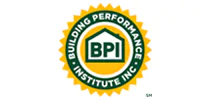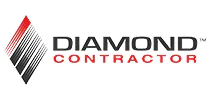Frequently Asked Questions
-
Common questions answered about HVAC servicing
- Does the HVAC Company have a service plan to maintain and protect my system?
Service plans can ensure that your unit receives regular, necessary HVAC servicing and maintenance to perform without problems for many years.
- What filter types are offered?
There are disposable and washable varieties, and some, like HEPA filters, can improve indoor air quality and protect your family’s health. When you schedule your HVAC servicing, we can help.
- How efficient will my new HVAC system be?
Consider lifetime operating costs, not just price when weighing your options.
- Are there any special offers or rebates I can claim?
Most HVAC companies will have manufacturer and seasonal specials to help offset the cost.
- Does the system I’m eyeing qualify for a tax credit?
Purchasing an energy efficient heating system can give you a break when tax season rolls around.
- Do I need to address humidity, either with a home dehumidifier or humidifier?
Keeping your home’s humidity level stable can improve the overall comfort in your home. Your system will run less, thus saving you money, when the humidity level is at it’s optimal seasonal level.
- Do I need multiple heating and cooling zones?
Your contractor should be able to help you select the right equipment for a zoning system that supports greater comfort and energy savings.
- What size system do I need?
Simply matching your existing system’s specifications is not in your best interest. A complete heat load calculation should be performed to ensure you are sizing your replacement system properly. Contact us for more info.
- Is forced-air heating and cooling my best option?
There are some other efficient alternatives to consider, including heat pumps and radiant heat systems.
- Will the HVAC Company provide a free, no obligation estimate for the system and installation, along with options to choose from?
When interested in HVAC servicing, your contractor should provide system options, indoor air quality accessories, warranty specifications, and energy efficiency in the estimates he or she provides.
- Does the HVAC Company have a service plan to maintain and protect my system?
-
Get some in-depth information about viruses.
- Swine Flu
A respiratory illness of pigs caused by infection with swine influenza A virus (SIV). While swine flu viruses normally do not infect humans, occasional infections of humans do occur. Human cases of swine influenza A virus infection occur in individuals who have had a history of recent direct contact with pigs or close (within 6 feet) contact with pigs. Rare instances of human-to-human transmission have been documented. Swine flu infections have also occurred in individuals with no history of exposure to pigs. Symptoms typically range from a mild respiratory illness to flu-like symptoms with fever. Treatment involves the use of antiviral medications begun as soon as possible after the onset of symptoms. Vaccines are available to be given to pigs to prevent swine flu in these animals. The swine flu pandemic of 2009 is caused by a novel influenza A (H1N1) virus that was originally referred to as “swine flu” because many of the genes in this new virus were very similar to influenza viruses that normally occur in pigs in North America. However, this new virus is actually quite different from the typical swine flu viruses found in pigs; the virus responsible for the 2009 pandemic is termed H1N1 flu virus or novel H1N1 flu virus. This virus first caused illness in Mexico and the United States in March and April, 2009. H1N1 flu is spread from person to person, unlike typical swine flu as described above. In 2009 vaccines are being developed for the prevention of swine flu in humans.
- SARS
Severe acute respiratory syndrome. A severe form of pneumonia which appeared in outbreaks in 2003.
- Candida
A yeast-like fungal organism found in small amounts in the normal human intestinal tract. Normally kept in check by the body’s own helpful bacteria, C. albicans can increase in numbers when this balance is disturbed to cause candidiasis of the intestinal tract, or yeast infections of other parts of the body. C. albicans causes thrush. Also called Monilia albicans.
- Bird Flu (Avain Flu, Avian Influenza)
Also called fowl plague, avian flu, and bird flu. A highly contagious viral disease with up to 100% mortality in domestic fowl. Caused by influenza A virus subtypes H5 and H7. All types of birds are susceptible to the virus but outbreaks occur most often in chickens and turkeys. The infection may be brought by migratory wild birds which can carry the virus but show no signs of disease. Humans are only rarely affected.
- Norwalk
Disease due to Norwalk virus, not one but a family of small round viruses that are an important cause of viral gastroenteritis (viral inflammation of the stomach and intestines). Norwalk disease is a significant contributor to illness in the US. Only the common cold is reported more frequently as a cause of disease. About a third of all cases of viral gastroenteritis after infancy are due to Norwalk viruses.
- Listeria
Group of bacteria capable of causing miscarriage (spontaneous abortion), stillbirth and premature birth and which can also cause serious and sometimes fatal infections in young children, frail or elderly people, and persons with a weakened immune system. Listeria contamination has been responsible for numerous recalls of food.
- MRSA
MRSA stands for methicillin-resistant Staphylococcus aureus S bacteria. This organism is known for causing skin infections in addition to many other types of infections.
- E.coili —Escherichia coli (E. coli)
A bacterium that commonly lives in the intestines of people and animals. There are many strains (types) of E. coli. Most of the E. coli are normal inhabitants of the small intestine and colon and are non-pathogenic, meaning they do not cause disease in the intestines.
- Bacillius SP
A large family of bacteria that have a rod-like shape. They include the bacteria that cause food to spoil, and also those responsible for some types of diseases. Helpful members of the bacillus family are used to make antibiotics, or colonize the human intestinal tract and aid with digestion.
- Strep
While many people use the terms sore throat, tonsillitis, and strep throat interchangeably, there are significant clinical differences between these conditions. Understanding the differences can give patients a better idea of how and when to be concerned and when to seek advice from a physician.
- Swine Flu






